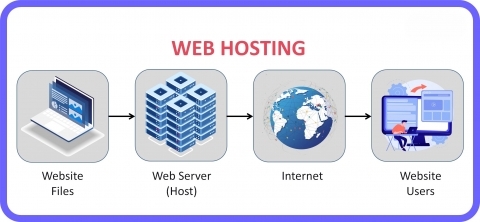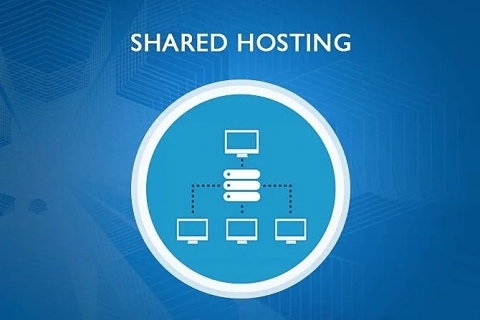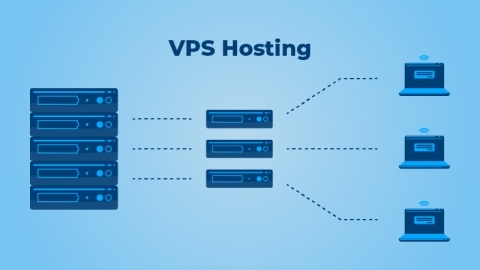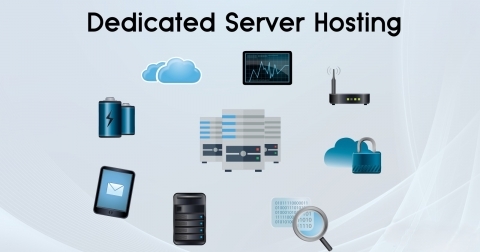There are so many web hosting options available for you to choose from. But there are only three types of web hosting that are popular among many. They are: shared, VPS, and dedicated hosting.
These three web hosting options give your company website peak performance. They are flexible choices when it comes to web hosting.
Web hosting is important for building your company website. It also helps keep your website’s resources in one place. It makes your website administration well-arranged. So, picking the best web hosting service gives you a competitive edge.
But it’s easy to get confused about picking the best web hosting solution for you. Among these three hosting options, which one is the best for you?

Well, don't worry!
This blog post is here to clear away all your confusion about this issue.
You’ll get to know about these three web hosting solutions in detail. This will help you choose the best hosting solution among the three.
You will learn from this blog about:
Disadvantages of Shared Hosting
Advantages of Dedicated Hosting
Disadvantages of Dedicated Hosting
Differences between Shared, VPS, and Dedicated Hosting
So, let’s begin!
What Is Web Hosting?
First of all, it’s necessary to know about web hosting, or how it works.
Your company website becomes accessible on the internet through web hosting. A website, once created, consists of lots of resources. Those resources contain lots of important data and files. HTML, CSS, and JavaScript are some examples of those files. It also comes with multimedia files like images and videos. So, you need to store those files on a server.

A robust web hosting solution gives you the technology and infrastructure. That helps you to store the files of your website. This leads to connecting your files to the internet. This simplifies accessing your website online for your users. And they can access it anywhere in the world.
Types of Web Hosting
There are six types of web hosting. They are the most popular among many users. Those types are:
- Shared Hosting
- Virtual Private Server (VPS) Hosting
- Dedicated Server Hosting
- Cloud Hosting
- Managed Hosting
- Colocation
But, as per this blog’s topic, we’ll only know about shared, VPS, and dedicated hosting.
What Is Shared Hosting?
Shared hosting is a type of web hosting where you get to host several websites under a single physical server. Here, each website gets the shared resources hosted on that server. Each website gets a shared amount of the server’s resources. Those websites also have to run within their distributed proportion.

There are some key aspects of shared website hosting:
- Resource Sharing: This serves as an important factor in this hosting service. Every website gets to share the server’s resources. These important resources are CPU, RAM, disk space, and bandwidth.
- Several Users: It allows hosting many users and their websites on the same server. And a hosting provider manages the whole configuration.
- Server Management: The hosting provider manages a lot of server-related activities. They are server maintenance, security, updates, and technical support. This relieves you from dealing with server administration operations.
- Safer Access Control: Each user can access their files and databases only. But you can’t see or access others’ data on the server.
Advantages of Shared Hosting
These are some of the advantages of shared hosting:
- Cheap in Price: Shared server hosting gives you one of the most cost-effective services. The cost of server resources gets divided among the users. This offers a perfect hosting solution for individuals and small businesses.
- Easy to Use: You get user-friendly control panels from most shared website hosting providers. So, if you’re a beginner without advanced technical knowledge, this helps you a lot. This makes it easy for you to manage your website.
- Pre-installed Features: Shared web hosting gives you many important pre-installed software. They are website builders, email hosting, and content management systems. This offers you some major benefits of hosting your website.
Disadvantages of Shared Hosting
Some of the disadvantages of shared hosting are:
- Insufficient Resources: In shared server hosting, you share resources with many other users. This gives your hosted website limited access to CPU, RAM, and bandwidth. And this can affect performance during traffic spikes.
- Performance Issues: Performance impact is a huge issue in shared website hosting. An increase in traffic flow in one website in this hosting slows down the other websites. This also makes an impact on sharing resources.
- Security Issues: Shared web hosting causes the risk of vulnerabilities on many hosted websites. Security attacks on a website on the server can put other websites in danger.
What Is VPS Hosting?
VPS means Virtual Private Server. This web hosting solution splits up a physical server into several virtual servers. Each of them operates in an independent manner. It also allocates its dedicated resources. Now, dedicated resources are not the same as the resources in dedicated hosting. You get a part of the resources from VPS web hosting. And that portion only serves as the dedicated resources for you.

This hosting offers you more control, flexibility, and resources than shared hosting. But you still get to share the same physical server with other VPS users.
Some of the key aspects of VPS website hosting are:
- Virtualization: VPS server hosting uses the virtualization technology. This is an essential factor for the function of the server. It divides a physical server into many virtual environments. And each of them works like a dedicated server.
- Dedicated Resources: Each VPS gives you its own dedicated part of the server’s resources. That means you get CPU, RAM, disk space, and bandwidth of your choice. This provides you with stable performance despite other users being on the same server.
- Isolation: Isolation is another important aspect of VPS website hosting. This makes each VPS separate from other virtual servers on the same physical machine. This ensures that activities in one VPS don’t affect others’ performance or security.
- Control and Customization: VPS web hosting gives you root access or administrative facilities. This allows you to install custom software. You can also configure server settings by managing the management to particular needs.
Advantages of VPS Hosting
These are some of the advantages of VPS hosting:
- Better Performance: VPS web hosting gives you peak performance and reliability. This is because you don’t have to share its resources. So, you don’t have to worry during high-traffic periods.
- Stronger Security: The isolated space of a VPS cuts down any kinds of security breaches. So, it keeps your website secure from the other websites on the server. This makes shared web hosting a more secure hosting service.
- Flexible Management: You can choose between managed and unmanaged VPS server hosting. Managed VPS gives you server maintenance and support. And unmanaged VPS offers you complete control over server management.
Disadvantages of VPS Hosting
The disadvantages of VPS hosting are:
- Higher Price: VPS website hosting is very much expensive. The expenses are high for this hosting because of its dedicated resources and improved features.
- Technical Knowledge: You need technical knowledge to handle unmanaged VPS web hosting. Technical skills are important for you to understand before running this kind of hosting
- Maintenance Issue: Maintenance is a serious issue for unmanaged VPS server hosting. You are responsible for all server management tasks. They are time-consuming and also need specific skills.
What Is Dedicated Hosting?
In dedicated hosting, you get an entire physical server for your sole use. You get all the essential server resources dedicated to your website. It offers the highest level of control, performance, and security among other hosting solutions.

These are the key aspects of dedicated website hosting:
- Complete Control: You get complete root access to the server. This allows you to set up the server. You can also install custom software and manage security settings on the dedicated server.
- Customizable Management: You get complete customization of the dedicated server’s hardware and software. Dedicated web hosting helps you choose the operating system. This makes you adjust the environment for your specific needs.
- Scalability: You can configure and enhance your dedicated servers to suit your growing needs. You can add more storage, RAM, or processing power with this hosting.
- Management Options: You get dedicated server hosting either managed or unmanaged. A server provider maintains your server environment in managed dedicated hosting. You handle everything related to the server with unmanaged hosting.
Advantages of Dedicated Hosting
The advantages of dedicated hosting are:
- Dedicated Server Resources: You get all the server’s resources dedicated only to you. These resources like CPU, RAM, storage, and bandwidth are crucial. Providing those, this hosting ensures supreme performance and stability for your website.
- Superb Performance: Dedicated website hosting gives you a peak server performance. This is ideal for high-traffic websites and large-scale applications. It is also useful for businesses requiring constant uptime and speed.
- Top-notch Security: You don’t have to share your server in dedicated server hosting. So, it gives you the best security protection. This hosting also gives you the option to apply custom security measures. This also provides reliability and stability to your website.
Disadvantages of Dedicated Hosting
Dedicated hosting also comes with some major disadvantages:
- Steep Cost: Dedicated web hosting comes off as the priciest hosting solution. Providing an entire server is its primary reason. This high cost is both for server hardware and any extra management services.
- Overprovisioning: Overprovisioning means paying for more resources than necessary. Dedicated server hosting can cause overprovisioning for smaller websites. This factor can also affect businesses with unstable traffic flow.
- Limited Scaling Flexibility: You need physical hardware upgrades to enhance dedicated servers. This turns out to be a more complex and time-consuming process. And it results in dedicated website hosting having little flexibility.
Differences between Shared, VPS, and Dedicated Hosting
There are some significant differences between shared, VPS, and dedicated hosting:

| Point of Difference | Shared Hosting | VPS Hosting | Dedicated Hosting |
| Resource Allocation |
You get all the server resources shared with other users on the same server. |
You get allocated server resources dedicated to you only. | You get all the resources of an entire physical server without any kind of sharing. |
| Performance | Performance fluctuates for a website if other websites use up more resources. | More consistent performance because of dedicated resources. | Peak levels of performance because of the entire server lease. |
| Control and Customization | It provides you with limited control over server settings. | You get much better control and customization than shared hosting. | You get total control over the entire server. |
| Security | Its shared environment causes more security risks. | You get better security than shared web hosting because of the isolation of the server. |
You get only the best security measures with this hosting. |
| Cost | It is the most affordable option due to the divided costs of the server resources. |
It’s more expensive than shared server hosting but still has economical pricing. |
It’s the most expensive hosting solution among the three. |
| Scalability | It offers you limited scalability due to limited shared server capacity. |
You get better scalability than shared website hosting. |
You can scale your resources to an extent but upgrades make physical changes to the server. |
| Management | A hosting provider manages this hosting. | It comes with both managed and unmanaged hosting but follows the characteristics of VPS hosting. | It also has managed and unmanaged hosting plans but follows the attributes of dedicated hosting. |
| Use Cases | Small websites with moderate traffic and low resource needs are the perfect fit for this hosting. | It is ideal for medium-sized businesses and e-commerce websites with more resources. | It is useful for large enterprise websites and high-traffic applications |
Final Thoughts
Well, the differences among these three hosting solutions are in front of you.
So, it’s up to you to choose from these three which one suits you the best.
Hope this blog post has helped you to settle your mind with a solid decision.
But, if you take my opinion, I’d suggest you choose dedicated hosting.
This hosting stands out as the best among the three. Yes, it has disadvantages, but they are very minor if you think about it.
Dedicated server hosting gives you the best hosting solution where you can control everything.
And when it comes to choosing the best dedicated hosting provider, choose Hosting Ultraso.
We provide you with the best dedicated servers at a cheap and affordable cost. You can access our hosting service from 119 data centers around the world.
Isn’t that amazing?
So, choose the best in the business to be the best.
Make your business go global with our dedicated servers.



